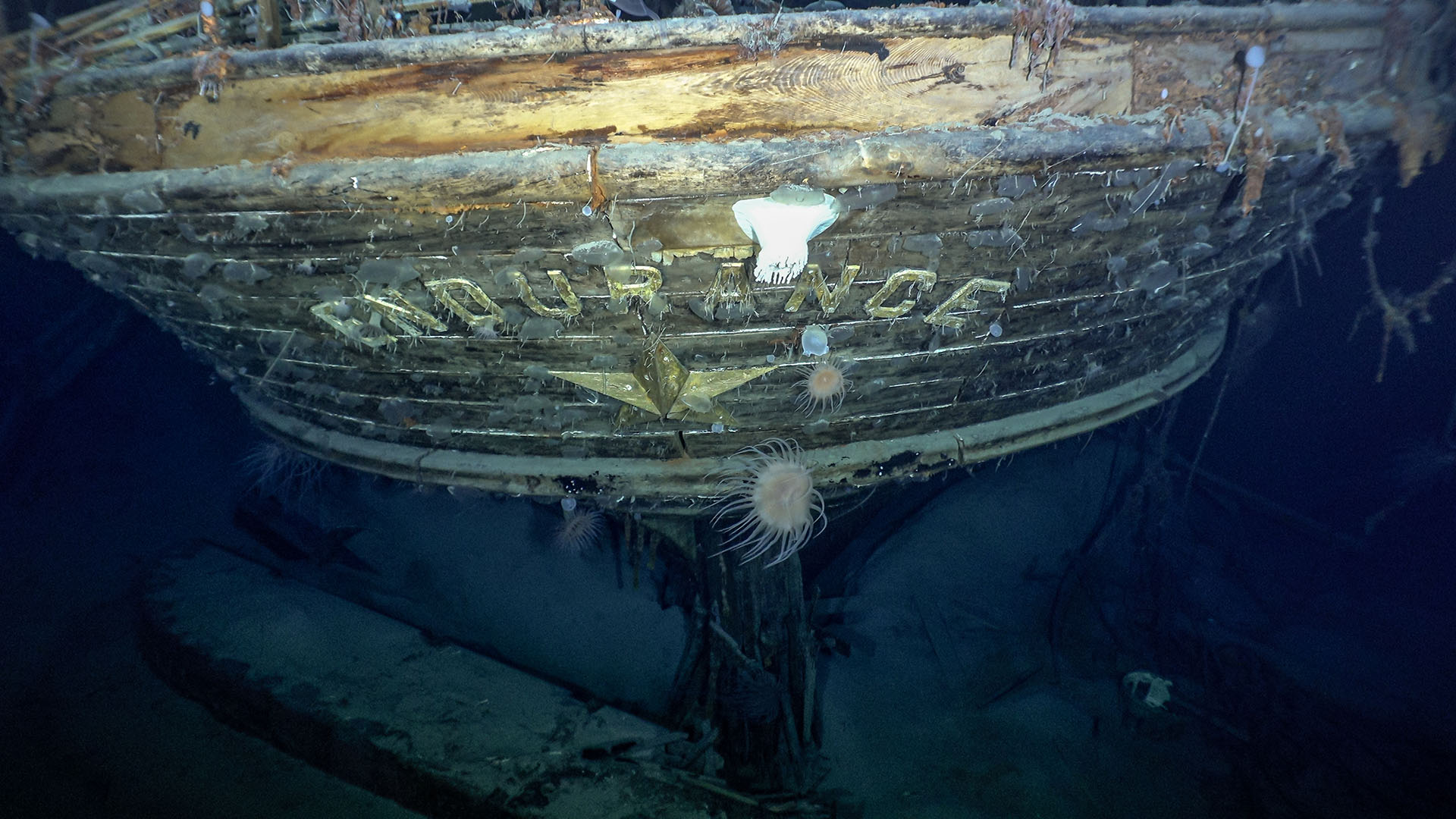If you have a father over the age of 55, it is likely that you have already heard the news: Endurance has been found. The ship, which was wrecked and abandoned in 1915 by Ernest Shackleton and his crew during their infamous and harrowing attempt to achieve the first land crossing of Antarctica, has been found at the bottom of the Weddell Sea by an expedition organized by the The Falklands Maritime Heritage Trust. According to the expedition's press release, Endurance was found 3,008 meters down, just four miles south of its last recorded location.
The expedition released some video footage of the Endurance, which remains remarkably intact.
This, I must say, is cool as hell. Though I have not yet become the sort of History Dad who has devoured every single book and article ever written about Shackleton's expedition, it is a story that has fascinated me ever since I first learned about it in grade school. Beyond the gory details about frostbite and shifting ice floes and starvation, what has always stuck with me is the supreme sense of alienation that the story first filled me with. The year 1915 wasn't that long ago, geologically speaking, and yet to read about what Shackleton and his men experienced is to be confronted with the inconceivable. It gets how cold in Antarctica? Those guys walked how many miles? Pack ice can do what to a ship? I am able to imagine exploring the arctic in the early 20th century no easier than I can imagine exploring Mars today, the only difference being that real human beings actually did the former. The courage (lunacy?) it must have required to journey into such a brutal unknown is something none of us will likely ever be able to understand.
And so I must say that my heart swelled a bit upon seeing that image of the ship's stern, intact and still bearing its name. It made me think of something a college professor once told me when she was explaining how astronomically unlikely it is for a given fossil to be created and preserved long enough for humans to discover it. Knowledge of basically everything that used to exist on this planet is lost to us, and the stuff we do know about is the result of extraordinary luck and our desire to continue searching. Finding a ship that was wrecked 107 years ago is obviously a different achievement than finding a fossil that has been preserved for 107 million years, but it is similar in kind. It's a reminder of how much there is, and always will be, to discover on this planet, and that none of it gets found unless we really go looking for it. I guess that's a mindset that was apparent to Shackleton and his crew, who feel more real to me today than I ever thought they could.






